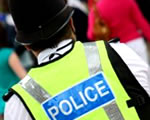 Go to main content
Go to main content
Archive Website of the UK government
Please note that this website has a UK government accesskeys system.
Main menu
Page menu
Young people

What can happen even if a young person is not charged with a crime

Even if you are not charged with a crime, the police can take action against you. They may tell you off or give you a warning, or you could be given a behaviour order. Find out what these are and how they can affect you.
When you get into trouble with the law
The police will try to give you a second chance
The police will normally tell you off or warn you the first time you get into trouble. They will try to give you a second chance, unless it’s a very serious crime.
The police could also give you a behaviour order, like an ASBO, if you are accused of being a nuisance in your community.
You could also be asked to take part in something called ‘restorative justice’. This is where you have to talk through what you did - sometimes with the victim - and make up the harm caused by the crime.
If you are charged with a crime you may have to go to court.
If you’re given a reprimand
If it’s the first time you have been in trouble the police could tell you off. This is known as a ‘reprimand’. They must give you the reprimand in front of your parents or another adult, and this often happens at a police station.
The police will keep a record of the reprimand, and you will only get told off once. If you get into trouble with the police again you could get a final warning or be charged with a crime.
You may get referred to the local youth offending team, who can help you with school, health or housing problems. This is to help you stay out of trouble, and deal with problems that made you get into trouble in the first place.
If you’re given a final warning
If you get into trouble for a more serious crime, or you have already had a reprimand, the police may give you a final warning. This is usually given to you at the police station.
If you get caught doing anything wrong again you could be charged with a crime and will have to go to court.
When you get the warning, someone from the local youth offending team will contact you and your family.
The team will try and help you stay out of trouble. If you refuse to work with the team, it can count against you if you later go to court.
If people complain about your behaviour
You can also get in trouble if you are accused of bad behaviour in your neighbourhood or in public.
Acceptable behaviour contract
This is an agreement not to misbehave if you are accused of being a nuisance in your community. You’ll have to sign this with your parents or carers.
You could get given an ASBO if you don’t stick to your agreement in the contract. If you live in a rented house, you could also be evicted.
Anti-social behaviour order (ASBO)
You can get an ASBO if you’re ten or older.
The ASBO can order you to stop:
- behaving in an anti-social way
- going to specific places, like town centres or other public areas
- spending time with people who are known as trouble-makers
If you get an ASBO it will last for at least two years. It could be reviewed if your behaviour improves. If you don’t obey the ASBO, you could be taken to court.
Individual support order
If you’re aged between ten and seventeen and you already have an ASBO, you could be ordered to get counselling or other kinds of support.
This is called an ‘individual support order’. The orders are aimed at supporting you if you have problems, like a drug habit or issues with anger management.
If you disobey the order your parents could be fined.
Local child curfew
You can also be banned from certain areas unless accompanied by a responsible adult between 9.00 pm and 6.00 am. This is called a local child curfew.
